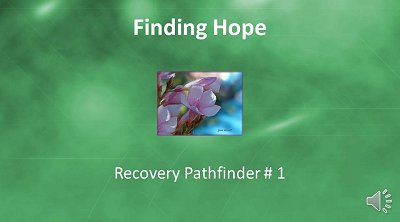
With the fast-paced and demanding work of healthcare, self-care needs to be a priority. The risk of burnout looms large in the world of healthcare. Burnout can affect both personal well-being and work effectiveness. Healthcare professionals face unique challenges, from grueling schedules to emotionally taxing situations. Self-care is not just beneficial but is essential. Below are some tips to safeguard mental health and to sustain passion for your work.
Consume Foods High in Nutrients
There is a strong connection between a balanced diet and mental health. By incorporating nutrient-rich foods, such as those high in omega-3 fatty acids, into your meals, you can boost brain function and energy levels. This supports your mental well-being and provides the stamina you need to handle the demands of your work. Having a nutritional plan, guided by a comprehensive health assessment can help you receive the necessary vitamins and minerals, for sustainable work-life balance.
Prioritize Good Sleep
Quality sleep is essential for both mental and physical health. Adequate rest enhances brain function and strengthens your immune system. For those working in high-pressure jobs, sleep deprivation can increase the risk of anxiety and depression. Having a consistent sleep routine can decrease these risks, promoting a healthier mood and better overall well-being. Making sleep a priority can help you be more resilient against stress and enhance patient care.
Find a Less Stressful Career Path
Finding a less stressful job within healthcare can be an important step in preserving your mental health. First, create a stellar and professional-looking resume that showcases your skills and achievements. Use an online resume builder to put your best foot forward and simplify the process. These tools offer a variety of professionally designed templates that you can customize with your own content, photos, colors, and images, ensuring your resume stands out in a competitive job market.
Request a Flexible Schedule
Having flexible scheduling can significantly reduce stress and prevent burnout among healthcare workers. By allowing you to tailor your shifts to align with personal responsibilities (such as childcare or education), you can achieve a better work-life balance. Employees with more control over their schedules tend to be more productive and engaged. Modern scheduling tools are often powered by AI. They, offer efficient solutions that adapt to the dynamic needs of healthcare workers, to benefit both individuals and the workplace.
Look for Humor in Your Work
Humor can help you cope with the challenges of healthcare. Incorporate humor into daily interactions to help decrease stress and reduce the risk of emotional exhaustion. Laughter with colleagues and patients can act as a buffer against the emotional toll of dealing with pain and loss. However, it’s important to use humor sensitively. It may not resonate with everyone. But humor can enhance communication and teamwork in a supportive work environment.
Seek Peer Support
Hold peer support meetings regularly. They are crucial for healthcare professionals to share experiences and challenges in a safe environment. These gatherings provide a confidential space where you can express feelings and receive empathy from others. By fostering a sense of community, these meetings help decrease loneliness and anxiety. When people realize others have faced similar struggles, they feel more at ease. And they are more likely to continue sharing if it is a caring workplace culture.
Try Gratitude Journaling
Gratitude journaling can be a powerful tool for healthcare workers to reduce burnout and create a more positive outlook. By taking a few minutes each day to reflect on and write down moments of gratitude, you can shift your focus from stressors to the rewarding aspects of your work and life. Focusing on gratitude helps build emotional resilience, enhance mental well-being, and provide a sense of purpose. Regular gratitude journaling also encourages mindfulness and can act as a reminder of the great impact healthcare workers have on their patients’ lives.
Use these tips to transform your healthcare experience and to foster a healthier and more sustainable career. When you prioritize self-care and community support, you can maintain your passion and dedication, which can enhance the quality of care you provide.
Explore a wealth of health education resources at Health Vista and empower yourself and your community with knowledge for a healthier future.
Blog # 32 added 12-15-24. Written by Guest Contributor Gwen Payne of invisiblemoms.com.









